Harvey Weinstein On ‘The Imitation Game,’ Best Picture Dissing, Sony Hack, Netflix And Quentin Tarantino

Yesterday morning, Harvey Weinstein sat down for what has become our annual look at his business, the Oscars and just about every other topic we can think of. Buckle up.
DEADLINE: Big Saturday morning New York Times story on you firing your Broadway publicist, and him firing back on Finding Neverland. He claims you demanded the GQ cover and he resigned. Beyond the question of whether a flack firing is Timesworthy, can I take this as a sign you haven’t lost your fire?
HARVEY WEINSTEIN: When Patrick Healy filed it and it lived as an internet story for 48 hours, there was humor and irony in that story. It changed, in print. I’d said, ‘If I knew the New York Times would cover a publicist leaving a production I would hire a publicist, fire him the next day and then rehire him the following day, just for the publicity. They left out that and an olive branch to Scott Rudin, where I called him the best producer on Broadway because of how he thinks outside the box and works hard to get extensive coverage for his shows in magazines and newspapers. I didn’t expect a GQ cover, just a mention on a page. In print, some Times culture editor who should work for a tabloid changes it to bare knuckle fighting.
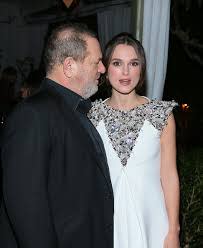
DEADLINE: I should note our Jeremy Gerard broke that story, before NYT got to it. Now, you mentioned irony?
WEINSTEIN: I just got named Showman Of The Year by the Publicists Guild.
DEADLINE: You are reaching a decade at The Weinstein Company. What was the biggest adjustment from being banked by Disney to starting all over?
WEINSTEIN: Banked by Disney. I never appreciated how easy my life was. Oh my God. I’d say I’m going to go to Africa and they would say, ‘Take the plane.’ I would go, ‘No, I’ll just go.’ And then they would send the plane because they wanted to make sure you came out of Africa. They were wonderful that way.
DEADLINE: So this must have been in the early part of the relationship?
WEINSTEIN: Certainly in Jeffrey Katzenberg’s years, throughout Joe Roth’s years. Later, with Michael Eisner things definitely changed and it was more like they’d send the plane with the hole in it. It was just easier, being able to plug into or unplug the Disney apparatus when I felt like it. There were epic battles like The Lord of the Rings. To this day, I’m miffed and if I was a Disney shareholder I’d still feel that way, and it was Mike Eisner’s decision and only his decision. That’s two billion dollars’ worth of profits, ongoing theme rights and parks and they would have owned all the merchandise and everything else. It stupefied me then, considering how well we were doing. And then Fahrenheit 9/11, where I felt I had to take a stand.
DEADLINE: And a stake.
WEINSTEIN: I bought part of the movie but Disney was the one who made the money. Michael’s deal was so punishing that Disney made 26 million dollars on that movie.
DEADLINE: More than you?
WEINSTEIN: We made way less. Michael did well, Disney did well. We did okay.

DEADLINE: So they were able to take an apolitical stance on that movie and still made 26 million dollars when it became the all-time biggest documentary?
WEINSTEIN: Yeah. I recall they put it through their foundation, which is a good thing. They gave that money to charity, so I was happy with that decision. But Michael was making sure that I didn’t get anything. You know, it’s just like when people say take a stand on something. All right, guys, I rolled the dice on my company and basically lost, if you really think about it, over Fahrenheit 9/11.
DEADLINE: As you move beyond year 10, what do you tell your investors and your board is the biggest growth opportunity and the business that just keeps changing very quickly?
WEINSTEIN: Well for us the worldwide success of Marco Polo has been breathtaking, and an eye opener. The reviews here in America were not great. The audience reaction on Netflix is stupendous. It’s the second highest they’ve ever had on a series. The reaction internationally has been huge. The movie is dubbed so we used an all Asian cast. Talk about diversity. We didn’t hire a big TV actor, like Bryan Cranston to play Kublai Khan. We hired Mongolians for Mongolians, Chinese for Chinese, other nationalities for their nationalities.
DEADLINE: Because Netflix is streaming to so many countries overseas?
WEINSTEIN: No, because Cindy Holland and Ted have integrity. They said let us take care of the marketing. We’ll get the people to see it, just make it right. In Asian it’s huge and in markets where it’s dubbed it’s spectacular. They wanted a show that would work internationally because it works here too.
DEADLINE: I recall it was the priciest pilot ever. Does it make money for you?

WEINSTEIN: It certainly does. What people don’t realize about Marco Polo is it cost 90 million dollars to make those episodes but because of economic rebates we got 40 million back. So now, look at the show again. This is how good those guys are, they made those episodes for five million dollars an hour and not 12 million dollars an hour like Game of Thrones. We built that kind of production value. At my company, we have arthritis of the wallet. We can’t pay. We’re trained by the indie world. We just can’t throw the money away. We can’t go retail.
DEADLINE: So Netflix put up the dough?
WEINSTEIN: Netflix put up the dough and we put up part of the dough, as their partner.
DEADLINE: You’re back in the Best Picture race again, a familiar place for you. Many of these candidates have gotten caught up in a narrative of controversy, latest American Sniper. My first thought reading all these negative stories on a soldier’s story is this has to be a choreographed campaign to take down a surging Best Picture candidate.

WEINSTEIN: I used to take this badly but now find it amusing. I ran into David Oyelowo at the AFI awards, right after the Lyndon Johnson stuff came out. The people are Paramount and the ones working on the movie are such good friends of mine, but David said people told him Harvey must be behind Joseph Califano criticizing Selma. I told him I was a producer on the Lyndon Johnson thing All the Way, which showed him as a pragmatic politician twisting arms to get a bill passed and dealing with Hoover, Dr. King and his whole panorama, and we didn’t get this kind of criticism. Beyond that, most people wouldn’t know that my wife Georgina and David and his wife Jessica grew up together and have known each other since they were 17 and art kids in acting school.
DEADLINE: Meaning that if you had screwed around with this…
WEINSTEIN: I’d be dead. My wife would never let me come home. David was laughing about it, and maybe it is funny they always blame me. LBJ was a pragmatist, a Southern politician who had great moments as president because he did the right thing when he needed to do the right thing and he sensed the mood of the public. It’s not like he had a track record in civil rights in 1959 before he was the vice president.
DEADLINE: I recently saw Best Picture winner Braveheart as all this swirled and watched William Wallace bed and impregnate the King’s daughter-in-law who was going to be the queen. Hard to believe, but one helluva an F You to a dying king. What does a fact-based movie owe to truth, matched with the need to create compelling narratives?
WEINSTEIN: We’re all wrestling with that. We did with Alan Turing on The Imitation Game. When you make a movie, sometimes for dramatic tension you need to do things. I support Ava DuVernay’s version. I said to the Wall Street Journal, she’s an eloquent spokesperson for the movie and the movie is damn good and it was a movie we were interested in making too. I told Oprah all of this. Then Ga
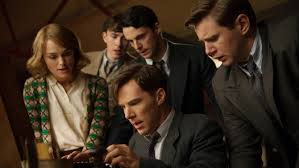
yle King, when I did a CBS interview, says, ‘We hear you’re the head of every smear campaign.’ It allowed me to say, ‘No, guys. Here’s how we win. Innovative marketing. Look at our advertising, which by the way is imitated by every other studio.’ They admit they took things from our playbook and I have to change the playbook every year, but I don’t deflate footballs. If we win, it’s fair and square. I called Stacey Snider and I said to her, ‘Stacy, do you remember all this A Beautiful Mind stuff came up and we were competing against you and there were charges of anti-Semitism with John Nash? She said, “Yeah. We thought it was you.” I was laughing with her on the phone Friday.
DEADLINE: So it wasn’t you?
WEINSTEIN: It has never been me. She found out on her own that it was another studio. We don’t do that. We will publicize our movie with the best of them, and send our writer to speak before the chamber of commerce in Peoria if it will help get people to see a movie. Bradley Cooper will tell you I’ve been one of his biggest allies on American Sniper from the beginning. I fight for the movies that I love even if they’re not mine. At this point in my career I will outwork everyone but I will not cheat. No deflate gate around here. It’s complete bulls*it. Will I fight for a story that praises us to the hilt? You bet. Will I wake you up at 4 in the morning? Sure. But I don’t say so and so is a bastard or their movie is inaccurate. If you look back at all the years we’ve known you, have I ever said that to you?
DEADLINE: Never.
WEINSTEIN: Please go on the record and say that. Here you are, Mike Fleming…
DEADLINE: But I’m not the guy people would run to with those stories.
WEINSTEIN: But let’s say it was Selma and I called you in advance and told you Joe Califano was going to come out and knock Selma to holy hell. You would run that. You’d want to be first. You’re competitive and you’re Irish.
DEADLINE: That’s fair. But we put Deadline at a potential competitive disadvantage refusing to wallow in those stolen Sony emails, because it didn’t feel fair and I didn’t trust the motives of those supplying it.
WEINSTEIN: That gives your publication tremendous integrity. One of your rivals, Scott Feinberg at The Hollywood Reporter did a fine piece…
DEADLINE: I gotta plug those bastards?
WEINSTEIN: Integrity, Mike? Anyway, it was about one of the movies that always inspired me, The Life Of Emile Zola. The whole second half of the movie is about the Dreyfuss Trial. They never used the word Jew in the whole movie and you know what it’s about despite the fact they never say it. There are so many movies that have historical inaccuracies, but built dramatic tension and were effective. Sometimes those criticizing are the ones who are wrong.
DEADLINE: On the Sony thing, Deadline took a moral stance and got lucky that the controversy played out quickly and the story hit a wall, possibly because those media outlets feasting on embarrassing confidential memos realized they had been used to validate a terror threat to blow up movie theaters, in a cover letter on more leaked documents that invoked the blood of 9/11. But we found other angles to be competitive. You get older and hope when you look back at stuff you were on the right side, a narrative that always plays in these historical true stories trying for Oscars.
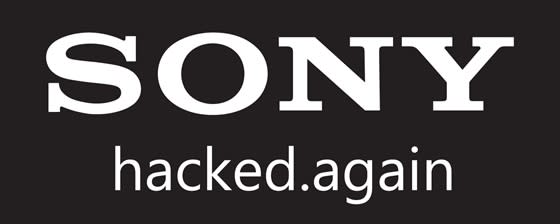
WEINSTEIN: Amy Pascal called me when all that Sony stuff happened. She said, ‘Harvey, there might be some bad emails about you.’ I said, ‘On what?” We had made that TV movie on the search for Bin Laden and they had Kathryn Bigelow’s movie, and we were thinking about releasing theatrically before them. We tried to make a deal so that there would be peace on earth, goodwill towards men. We are not the easiest deal makers. Amy said, ‘I might have not liked you at that time.’ I say, I’m shocked that there ever would be a bad email about me. I said to her and she’ll tell you, ‘Amy, whatever it is, it’s fine, and tell me what you need and I will support you.” She said, ‘Reach out to Scott Rudin, your rival and tell him you support him too.’ I gulped and I said okay. This is when you do the statesman-like thing. I called him, no call back. Matt Hiltzik, who worked for me once and did crisis management for them, says the same thing. ‘Call Scott, he’d really appreciate hearing from somebody who’s political like yourself. I called him, he never called me back. I just wanted to say I’ve been in a similar position. I’ve been criticized to the hilt and I just wanted to say, learn from it. Don’t do some of these things anymore. Understand that you’re a great talent and take this as an opportunity to refocus.
DEADLINE: Everyone quickly expressed public outrage over Charlie Hebdo, but here we Sony the victim of an unprecedented cyber terror attack by North Korea, right in Hollywood’s backyard, and nobody said anything for the longest time while Amy Pascal and Michael Lynton saw all their dirty laundry emails aired? Even the MPAA said nothing.
WEINSTEIN: I can only speak for myself. Amy called me. I said tell me what you need me to do and I’ll be supportive. No call came. They put a story out that Amy had called me and…
DEADLINE: You are saying you were ready to speak publicly?
WEINSTEIN: If Amy had asked me, yes. She didn’t ask me. I saw Michael and said, can I be supportive?
DEADLINE: Why did studios clam up?
WEINSTEIN: I don’t know why other people do what they do. I know what I was capable of doing, what I was asked to do. I figured if they weren’t calling themselves and saying step up for us, that they might have their own constructive plan. They had a lot of people there doing crisis control. Maybe they wanted to show it was best that Amy and Michael show leadership and handle it.
DEADLINE: Last year, your Best Picture candidate Philomena brought a campaign to bring transparency to forced adoptions in Ireland. Now it’s about pardons for Alan Turing and others convicted of being homosexual. Why is it important to go beyond simply which film Academy voters like best?
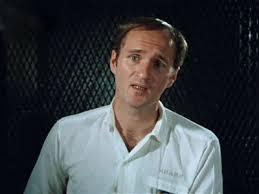
WEINSTEIN: This started for us in 1989, when we distributed The Thin Blue Line. Randall Adams was wrongly imprisoned by a hotshot DA who was looking to build a name for himself even if he had to incarcerate the wrong guy in a murder. Subsequently it came out that it was somebody else who murdered this guy. We released the movie 12 times in Dallas to the most annoying effect and Randal Adams walked out of a Dallas prison and into my office. All due to Errol Morris. We had a hand in it as a company at Miramax and the effect of seeing Randall Adams freed changed me to realize these films had more power than I thought. Daniel Day-Lewis spoke to Congress during My Left Foot in favor of the Handicap Access Bill, and it helped gain bipartisan support and the bill passed. It’s transformative but it usually doesn’t come from us, but rather the filmmakers. In this case, Benedict Cumberbatch has been on a tear, from day one. What does a pardon mean for Alan Turing? This guy’s a hero and heroes get a medal of honor, and knighthood. This guy got a pardon for being gay, after they chemically castrated the man Winston Churchill called the greatest hero of World War II? Benedict says, put him on the 10 pound note. Do something. I was on a plane and this stewardess named Lynn Hood says she’s disappointed in our movie because it didn’t deal with the 49,000 others who were prosecuted for being gay. She said British Airways has aggressive programs about integrating gay people and this was important. Here I’m trying to get home to see my kids, but you know, she was right.
DEADLINE: Obviously you’d like Best Picture, but what would constitute success on The Imitation Game?
WEINSTEIN: Pardons for the 49,000 people is probably most important. If Turing got honored for his genius, that would be great too. You see heroes all the time, but never one who built a computer, used it to defeat the Nazis, and who was gay. We’ve never had a gay protagonist win Best Picture. It just doesn’t happen.
DEADLINE: Never?
WEINSTEIN: The only thing close is probably Midnight Cowboy, but that was more an anti-hero I guess. Brokeback Mountain lost to Crash. This has never happened. That would be historic for this movie.
DEADLINE: Looking back over the past year, what really happened with Grace Of Monaco? It had Nicole Kidman as Grace Kelly and it has disappeared. You clashed with the backers and director over cut, they defied you and got in as the Cannes Festival opener and their cut got buried by critics. After losing that global launch opportunity, will we ever see that movie?

WEINSTEIN: Well, you’ll probably see it, either in a small theatrical release or on TV afterwards, but this is what happened. The script we signed on for was like The King’s Speech, with the big moment where Princess Grace steps up. That is what attracted Nicole. I made eight movies with her including co-producing The Hours with Paramount, and The Others. I know why she took it and why I was involved. I’d seen rushes that were great. The director is French, and he turned it more into a Hitchcock movie like a paean to Vertigo, which ironically Grace wasn’t in. The writer, Arash Amel, called me and said, what happened to my script. It’s like welcome to Hollywood. Writers don’t have any say, but we decided to pair him up with a team of people and see what he could do about restoring the movie to the way it looked when he wrote it. He did a wonderful job. You can ask Nicole. A beautiful job.
The director refused and criticized me profusely. In the old days, I would have fought for it. Here, I said, the better part of valor was just to tell Nicole, you should get this done and if you can’t then I’m not going to, because I’m tired of this. I don’t want these fights. That movie would have been helped greatly by the writer’s cut of the film and it’s something that people should see someday. It wasn’t a transformative movie but it was a damn entertaining one. But Olivier Dahan wanted to do what Olivier wanted to do. He called me names in the French newspapers. I figured the best thing to do was to step out. I had already said what I had to say and let Cannes be the judge. I was with Georgina at a refugee camp and I’m reading all these accounts of how Harvey Weinstein must have been a genius for trying to prevent this; now we get it. That moniker of Harvey Scissorhands has always followed me and simply put, it was made up by a competitor who probably has re-cut more movies than I have. I’ve never cut a movie behind anybody’s back. We told Olivier what we were doing, and asked him to come for the test. The producer of the film thought Olivier shouldn’t come for the test. Everything is transparent and upfront and yet these monikers persist.
DEADLINE: How has your method of influencing a cut changed from when that moniker first cropped up? Is it harder or easier today to get filmmakers to listen and get their movie the maximum exposure?

WEINSTEIN: Distributors will always have a tendency to play for the commercial side of things, but I don’t want to dumb down these movies. I always say, don’t trust my taste, it’s sort of anti-commercial. I go the other way. We don’t want to impose anything. You just want to be the catalyst to change if it’s needed. So many filmmakers I work with again and again trust me and it’s almost like we don’t even need to talk. It’s easy. Snowpiercer is a great example. I didn’t see the movie as commercial in a 2500 screen launch, which they wanted to do. I saw it as an art house film, the way he directed it. I said we should cut 20 minutes and a few other things. Major directors who I will not name said the same thing to me. Some of the biggest directors in the world said Harvey’s helping you. We came up with this idea about VOD and Snowpiercer worked great. Then I got criticized. They said, had I had the guts to go wide with such a great movie it would have done well. I owned Australia on the movie and I told them, go wide. We bombed. I wanted to see it for myself and then every other country, with the exception of France where the comic book is based and South Korea where Bong Joon Ho is a huge hero, and the movie didn’t work anywhere except for America where we did this VOD platform and it was a spectacular hit. Nobody writes that article, one that says, that son of a bitch was right.
DEADLINE: Besides Marco Polo, your Crouching Tiger, Hidden Dragon pic is Netflix’s first feature. Ted Sarandos sticks his thumb in the eye of theater owners constantly over their arcane windowing system. How much grief did you get from your relationships with exhibitors?
WEINSTEIN: The combination of IMAX and Netflix makes it as big as you can get or as small as you want to look at it. I still hope that there can be a meeting of the minds with theaters and I know that IMAX thinks so too. This wasn’t to knock the theaters out. It was also to recognize there is a middle road with theaters that recognizes this new accessibility that Netflix is talking about, one that just works for a lot of kids today. It doesn’t work for everybody but it works on some movies. You look at Imitation Game and American Sniper. Imitation Game this weekend will break Grand Budapest Hotel’s record as the biggest grossing movie this year in independent film. It’s on its way to do 100 million dollars before the Oscars.
DEADLINE: $100 million domestic?
WEINSTEIN: Yes. It’s going to reach 60 million this weekend. We went from 1500 to 2000 and next weekend 2500 and eventually 3000 theaters. So you have eyeballs that will now watch the Oscars because of Budapest, because of Imitation Game, because of American Sniper. I don’t care if the smallest movie wins but I want people to watch the Oscars because all the movies profit by the attention and publicity. American Sniper, doing the kind of business it does, that’s exhibit A for the health of movie theaters. That’s the zeitgeist hit.
DEADLINE: Netflix is part of the nimble disruptive force that includes TV. We could watch Marco Polo right now on my iPad. The long gap between theatrical and VOD seems arcane by comparison. Is there common ground or will theater owners always dig their heels in to protect their brick and mortar investments?
WEINSTEIN: There has to be a medium. My 19-year-old daughter says, ‘Dad, I don’t need cable. I’ll take Netlix, Hulu and CNN. Give the rest of the money to a worthy cause.’ I say, what’s the worthy cause? ‘Shoes.’ Then she comes to a Samsung demonstration and puts me in front of a 55 inch TV and sticks this little thing into the computer and suddenly I am watching Marco Polo on that screen and then she shows me the same thing on a 105 inch screen. It looked amazing. I realize if you want to watch on your telephone you can, but if you want to make a night of it and binge out on episodes of this series, it looks like a gigantic film. Then you look at it in 4K and you go, please.
DEADLINE: That feels like a slippery slope for theaters.
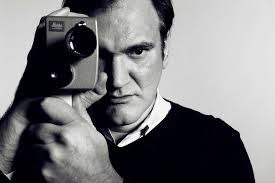
WEINSTEIN: If you want the communal experience that American Sniper offers you right now, it’s crazy great word of mouth and crazy brilliant performance and that works in the theater. It’s communal. I’m a movie theater guy. Quentin Tarantino is just starting The Hateful Eight, and we’re shooting it in 70 mm. That’s how it’s going to be initially seen. We did it with The Master. I love the pure art form of cinema but you have to be open to new technology. If we had this conversation 40 years ago we’d have said, this box called television, don’t you think it’s going to ruin movies? Not when American Sniper is going to gross 300 million dollars in three weeks. And a movie like The Imitation Game with its unlikely protagonist, the so-called tough subject matter is going to gross 100 million dollars before the Oscars and do The King’s Speech business. Tell me again how TV f*cked the movies? Ted, by the way, a lot of guys talk bottom line, but you talk with him and you’d be hard pressed to find somebody who knows more about the history of movies, especially documentaries. One of the things I love about Netflix is Ted and Cindy are both so hands on and into the nitty gritty. All passion.
DEADLINE: What must theater owners do to adapt?
WEINSTEIN: They’re already innovating. It’s just being open to technology themselves and also building the best possible theaters that are clean, that have great sound, that really make it an experience to go to the movies. I remember being in Utah with a couple of my kids and family members and friends. We all went to see Avatar in this beautiful theater, I forget the chain, maybe Cinemark. Mind blowing experience you can not have, watching on a computer or 55 or 105 inch screen. That’s the kind of movies we have to make and at the same time we have to make enough provocative movies that get people into the theaters.
DEADLINE: You mention Quentin Tarantino. How did all the turmoil—he shelved that movie after an actor’s agent leaked the script, he sued a website that served it up online—influence the finished product that Quentin puts into production this week?
WEINSTEIN: It was terribly unfair to Quentin. There was no consideration whatsoever. So many businesses today have this paradigm: how can I steal content from somebody else and charge for it? It’s like the old line. You go to your father’s clothing store and you walk out with six shirts and you sell them across the street, you understand that’s stealing. But people don’t understand that content is stealing and they stole Quentin’s content. It’s theft. He’s a tough and smart customer and what he’s done to that movie…I’m pretty close to him, but I had to go to the house and read the last chapter and it has changed. Right now, there’s one guy who knows the ending. The one I read, he made adjustments that will shock, surprise and delight. Me, the whole cast, we’re all guessing. There’s only one guy who knows what will happen.
DEADLINE: Will we be discussing it this time next year, when The Hateful Eight might be in the Oscar mix?
WEINSTEIN: I think it will be ready. Quentin is a filmmaker statesman in our industry who has innovated tremendous change, who loves movies. You talk about the movie theaters. Quentin’s the enemy of the new digital technology. If I were the movie theater chains I’d just play Hateful Eight forever, just figure out new and innovative ways to show it in 70 mm. But they won’t step up. We say, ‘We’ll help you with the cost, let’s show this on film.’ Right now, thanks to Chris Nolan and Quentin, film is coming back. We’re all helping Kodak. My brother is spearheading it with the other studios. We need theater owners to put some money into this effort. You show a 70 mm six track stereo Quentin Tarantino movie, and I’m sure Marty Scorsese would insist of showing his movie that way. Spielberg’s got a new movie, all these guys. Give them the tools and they will bring the audience.
DEADLINE: How close to extinction are 70 mm film projectors?
WEINSTEIN: Thank God we did The Master with Paul Thomas Anderson, it was our run through on an international level. We know where every 70 mm theater is in the world. Erik Lomis, who has run our distribution for years, he’s too busy to come to meetings. He says he’s in the spare parts business. He’s got guys all over, finding these film projectors and parts. Somebody’s got to say, screw it, I own Lincoln Square and I’m an IMAX theater and I’m going to work with IMAX and those guys and put in a 70 mm projection system that blows the doors off the joint. I didn’t see Interstellar in my neighborhood movie theater. I went to the Lincoln Square and got my head blown off and loved every second.
Related stories
'Hobbit' Storms China; 'Sniper' Takes Out More Records: International Box Office
'American Sniper' Shoots Past $200M, 'Mortdecai' Nosedives At $4.1M – Sunday Final
'Birdman' Soars As PGA Sets A New Course For WIDE OPEN Best Picture Oscar Race
Get more from Deadline.com: Follow us on Twitter, Facebook, Newsletter
